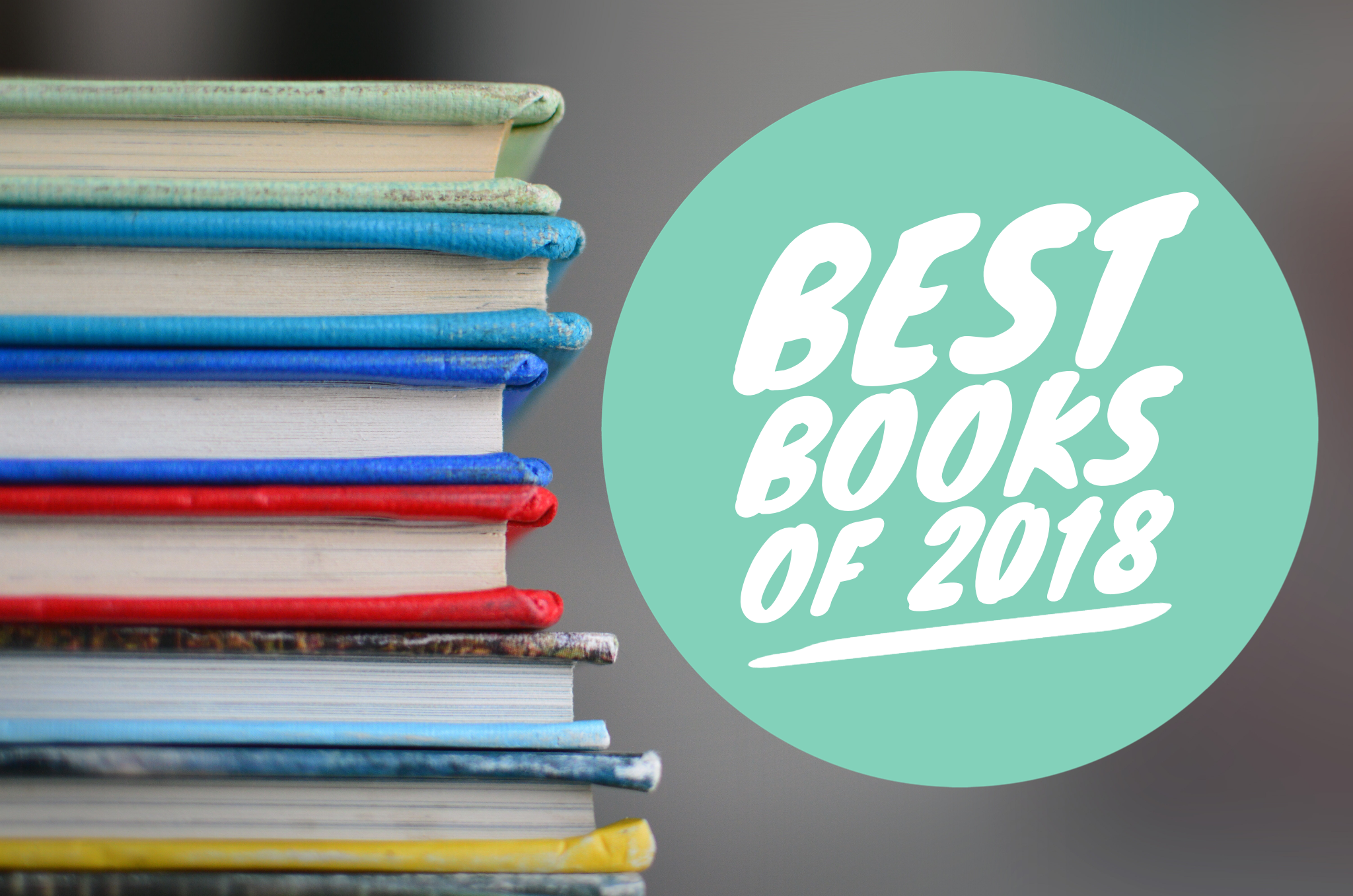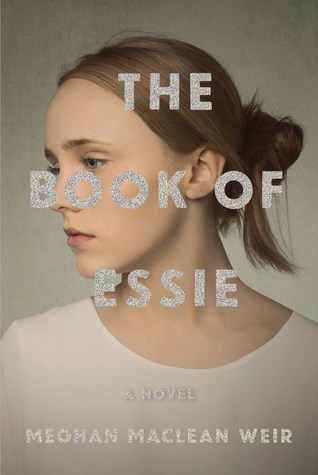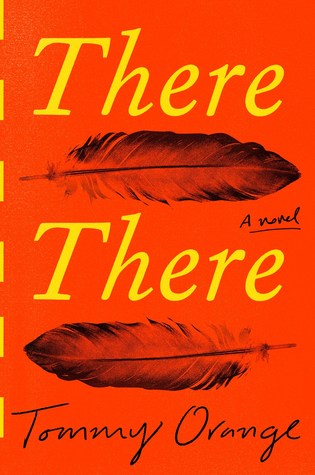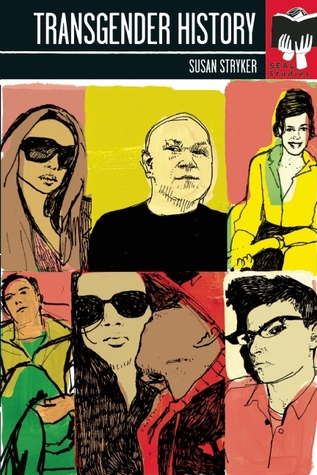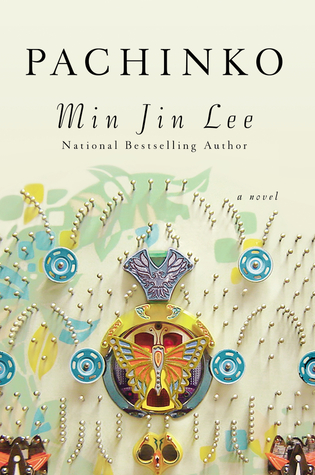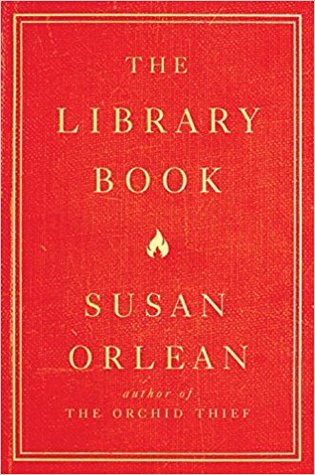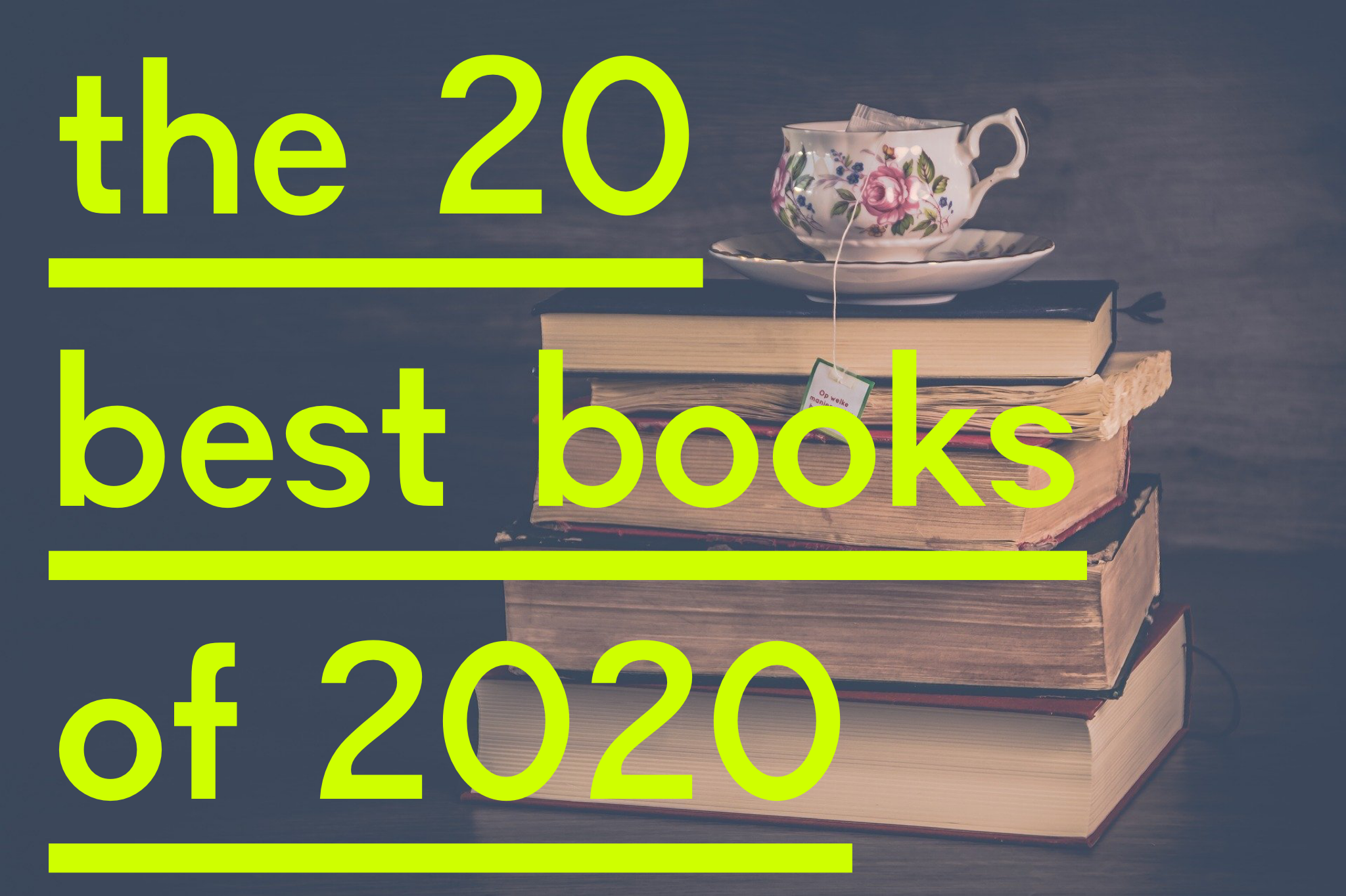The 20 Best Books of 2018
I love “best of” lists, though I also understand the complaints that they’re subjective. But hey, if you didn’t want my very subjective opinion, you wouldn’t be reading this blog.
So yeah, this list is just my own super subjective, non-professional opinion. It’s not even wholly comprised of books published in 2018. Since I read a mix of new and backlist, the books I drew from to make this list are books I read during the 2018 calendar year.
I normally do a top 10 or top 15, but (at the time of this writing) I’ve read 145 books in 2018 and to make the list any smaller than top 20 would mean leaving out some really good ones.
So we’ll start from #20 and count down to #1. Let’s go!
#20. My Year of Rest and Relaxation by Ottessa Moshfegh
Description from Goodreads:
A shocking, hilarious and strangely tender novel about a young woman’s experiment in narcotic hibernation, aided and abetted by one of the worst psychiatrists in the annals of literature. Our narrator has many of the advantages of life, on the surface. Young, thin, pretty, a recent Columbia graduate, she lives in an apartment on the Upper East Side of Manhattan paid for, like everything else, by her inheritance. But there is a vacuum at the heart of things, and it isn’t just the loss of her parents in college, or the way her Wall Street boyfriend treats her, or her sadomasochistic relationship with her alleged best friend. It’s the year 2000 in a city aglitter with wealth and possibility; what could be so terribly wrong?
Why I picked it
I was honestly surprised I liked this one as much as I did. I tend to hate the genre of novel that’s “people in New York having feelings” and this is definitely that. I can’t relate to the protagonist whatsoever and there’s not a single likable character. But it’s the premise that drew me: who among us hasn’t found ourselves in such a pit of despair, either circumstantially or through depression, that we just wanted to sleep endlessly and wake up and have things be different? I certainly have. Though so few people have the privilege to actually do it when there are jobs to do and bills to pay and relationships to maintain. I liked being able to actually see what 6 months of near-constant sleep might do to a person. And let’s just say, I haven’t expressed that particular desire again no matter how bad my depression gets.
#19. The Book of Essie by Meghan Maclean Weir
Description from Goodreads:
Esther Ann Hicks--Essie--is the youngest child on Six for Hicks,a reality television phenomenon. She's grown up in the spotlight, both idolized and despised for her family's fire-and-brimstone brand of faith. When Essie's mother, Celia, discovers that Essie is pregnant, she arranges an emergency meeting with the show's producers: Do they sneak Essie out of the country for an abortion? Do they pass the child off as Celia's? Or do they try to arrange a marriage--and a ratings-blockbuster wedding? Meanwhile, Essie is quietly pairing herself up with Roarke Richards, a senior at her school with a secret of his own to protect. As the newly formed couple attempt to sell their fabricated love story to the media--through exclusive interviews with an infamously conservative reporter named Liberty Bell--Essie finds she has questions of her own: What was the real reason for her older sister leaving home? Who can she trust with the truth about her family? And how much is she willing to sacrifice to win her own freedom
Why I picked it
This is another one I didn’t expect to like as much as I did. Considering that I can’t stand reality TV and I grew up in an evangelical community that I’ve come to resent, on the surface it didn’t seem like there was much for me to take interest in. But I kept hearing people say The Book of Essie was good, so I gave it a chance and I’m SO GLAD I did. It’d oddly feminist and through a series of well-calculated moves, Essie gets her revenge on her family and gains her independence in the process. Essie is the kind of character you can’t help but root for and one who’s as strong as you wish yourself to be.
#18. New Erotica For Feminists: Satirical Fantasies of Love, Lust, and Equal Pay by Caitlin Kunkel, Brooke Preston, Fiona Taylor, and Carrie Witmer
Description from Goodreads:
Imagine a world where erotica was written by feminists: Their daydreams include equal pay, a gender-balanced Congress, and Tom Hardy arriving at their doorstep to deliver a fresh case of LaCroix every week.
Both light-hearted and empowering, New Erotica for Feminists is a sly, satirical take on all the things that turn feminists on. From a retelling of Adam and Eve to tales of respectful Tinder dates, New Erotica for Feminists answers the question of “What do women really want?” with stories of power, equality, and an immortal Ruth Bader Ginsburg.
Why I picked it
I don’t often laugh out loud at books, but this one had me in a constant state of howling, screaming, and cackling for the entire time I read it. I kept interrupting my husband, saying, “OMG YOU HAVE TO LISTEN TO THIS,” and texting my friends pictures of the passages. And every story is three pages or less, most of them just a single page. So it’s good if you’re having a bad day and want a quick laugh or are going through something that doesn’t give you much bandwidth for reading. Plus, it’s heavily binge-able. I think I finished it in like an hour.
#17. There There by Tommy Orange
Description from Goodreads:
There There is a relentlessly paced multigenerational story about violence and recovery, memory and identity, and the beauty and despair woven into the history of a nation and its people. It tells the story of twelve characters, each of whom have private reasons for traveling to the Big Oakland Powwow. Jacquie Red Feather is newly sober and trying to make it back to the family she left behind in shame. Dene Oxendene is pulling his life back together after his uncle’s death and has come to work at the powwow to honor his uncle’s memory. Opal Viola Victoria Bear Shield has come to watch her nephew Orvil, who has taught himself traditional Indian dance through YouTube videos and has come to the powwow to dance in public for the very first time. There will be glorious communion, and a spectacle of sacred tradition and pageantry. And there will be sacrifice, and heroism, and unspeakable loss.
Why I picked it
Earlier this year, I realized my heroes are not mine and they are not my heroes. I’d been a Sherman Alexie fan for over a decade and recommended his work countless times. So when #MeToo came for the literary world and I found out he was a predator, I was crushed. It also made me realize that I’d been so absorbed with his work that I hardly knew any other Native American writers. I set about to change that this year and found Tommy Orange (among other Native American writers) and he’s better than anything I could have imagined. I don’t miss Sherman anymore.
#16. Evicted: Poverty and Profit in the American City by Matthew Desmond
Description on Goodreads:
In this brilliant, heartbreaking book, Matthew Desmond takes us into the poorest neighborhoods of Milwaukee to tell the story of eight families on the edge. Arleen is a single mother trying to raise her two sons on the $20 a month she has left after paying for their rundown apartment. Scott is a gentle nurse consumed by a heroin addiction. Lamar, a man with no legs and a neighborhood full of boys to look after, tries to work his way out of debt. Vanetta participates in a botched stickup after her hours are cut. All are spending almost everything they have on rent, and all have fallen behind.
The fates of these families are in the hands of two landlords: Sherrena Tarver, a former schoolteacher turned inner-city entrepreneur, and Tobin Charney, who runs one of the worst trailer parks in Milwaukee. They loathe some of their tenants and are fond of others, but as Sherrena puts it, “Love don’t pay the bills.” She moves to evict Arleen and her boys a few days before Christmas.
Even in the most desolate areas of American cities, evictions used to be rare. But today, most poor renting families are spending more than half of their income on housing, and eviction has become ordinary, especially for single mothers. In vivid, intimate prose, Desmond provides a ground-level view of one of the most urgent issues facing America today. As we see families forced into shelters, squalid apartments, or more dangerous neighborhoods, we bear witness to the human cost of America’s vast inequality—and to people’s determination and intelligence in the face of hardship.
Why I picked it
I first found out about this book from Obama’s favorite books list and the man has good taste! This book completely changed everything I thought I knew about poverty and housing. How easy it is to get evicted. How rent prices have soared over the years. How hard it is to find an apartment in modestly livable conditions when you’re poor and have kids to raise. How the actions of your neighbors can get you in trouble just by proximity. It made my heart hurt, but it also made me more aware. It made me think twice before calling a noise complaint on the apartment across the street when I heard yelling and 30 minutes of a car alarm going off. Yeah, it was annoying, but not enough to risk someone getting kicked out of their home when it takes so little.
#15. The Best Cook in the World: Tales From My Momma’s Table by Rick Bragg
Description from Goodreads:
Margaret Bragg does not own a single cookbook. She measures in "dabs" and "smidgens" and "tads" and "you know, hon, just some." She cannot be pinned down on how long to bake corn bread ("about 15 to 20 minutes, depending on the mysteries of your oven"). Her notion of farm-to-table is a flatbed truck. But she can tell you the secrets to perfect mashed potatoes, corn pudding, redeye gravy, pinto beans and hambone, stewed cabbage, short ribs, chicken and dressing, biscuits and butter rolls. The irresistible stories in this audiobook are of long memory -- many of them pre-date the Civil War, handed down skillet by skillet, from one generation of Braggs to the next. In The Best Cook in the World, Rick Bragg finally preserves his heritage by telling the stories that framed his mother's cooking and education, from childhood into old age. Because good food always has a good story, and a recipe, writes Bragg, is a story like anything else.
Why I picked it
If there’s one thing I’ve learned from reading so many books, it’s that no one but a Southerner can capture the voice and mysteries and idioms and folklore and inherent humor of the South. So many of the dishes Bragg describes are things I’ve had or at least heard lamented about in my own family’s kitchens. I laughed until I couldn’t breathe and found myself nodding along at hearing my family’s cooking and folklore repeated in such gorgeous yet blue collar prose. Even if you never cook any of the recipes in the book, you can’t help but love and be entertained by all the stories.
#14. When They Call You a Terrorist: A Black Lives Matter Memoir by Patrisse Khan-Cullors and Asha Bandele
Description from Goodreads:
Raised by a single mother in an impoverished neighborhood in Los Angeles, Patrisse Khan-Cullors experienced firsthand the prejudice and persecution Black Americans endure at the hands of law enforcement. For Patrisse, the most vulnerable people in the country are Black people. Deliberately and ruthlessly targeted by a criminal justice system serving a white privilege agenda, Black people are subjected to unjustifiable racial profiling and police brutality. In 2013, when Trayvon Martin’s killer went free, Patrisse’s outrage led her to co-found Black Lives Matter with Alicia Garza and Opal Tometi.
Condemned as terrorists and as a threat to America, these loving women founded a hashtag that birthed the movement to demand accountability from the authorities who continually turn a blind eye to the injustices inflicted upon people of Black and Brown skin.
Championing human rights in the face of violent racism, Patrisse is a survivor. She transformed her personal pain into political power, giving voice to a people suffering in equality and a movement fueled by her strength and love to tell the country—and the world—that Black Lives Matter.
Why I picked it
There’s so much to unpack here. I’ve read writing by activists before and they all say it’s a hard job, but I’ve never heard anyone get as real about it as Patrisse. The challenges of having an incarcerated parent, of being queer and falling in love, of being black in a world that demonizes, vilifies, and terrorizes black people then calls them terrorists when they demand to be recognized in their humanity. It’s not a long book, but it’s one I haven’t been able to stop thinking about. And it shows how #blacklivesmatter didn’t just spawn randomly from the Twitterverse––the movement was a long time coming and Patrisse had been working toward it her entire life.
#13. Erotic Stories for Punjabi Widows by Balli Kaur Jaswal
Description from Goodreads:
Nikki lives in cosmopolitan West London, where she tends bar at the local pub. The daughter of Indian immigrants, she’s spent most of her twenty-odd years distancing herself from the traditional Sikh community of her childhood, preferring a more independent (that is, Western) life. When her father’s death leaves the family financially strapped, Nikki, a law school dropout, impulsively takes a job teaching a "creative writing" course at the community center in the beating heart of London’s close-knit Punjabi community.
Because of a miscommunication, the proper Sikh widows who show up are expecting to learn basic English literacy, not the art of short-story writing. When one of the widows finds a book of sexy stories in English and shares it with the class, Nikki realizes that beneath their white dupattas, her students have a wealth of fantasies and memories. Eager to liberate these modest women, she teaches them how to express their untold stories, unleashing creativity of the most unexpected—and exciting—kind.
As more women are drawn to the class, Nikki warns her students to keep their work secret from the Brotherhood, a group of highly conservative young men who have appointed themselves the community’s "moral police." But when the widows’ gossip offers shocking insights into the death of a young wife—a modern woman like Nikki—and some of the class erotica is shared among friends, it sparks a scandal that threatens them all.
Why I picked it
If you’d told me at the beginning of the year that I’d have TWO books on my best of list with “erotic” in the title, I’d have laughed. Erotica isn’t a genre I normally read and, in truth, neither of the two books I picked are technically erotica. But they’re important tangential books that help bridge a gap between the mainstream and the oft-maligned and looked-down-upon genre. In this book I particularly appreciated how older women’s sexuality is explored in a real way and not as a caricature––something we don’t see nearly often enough. I believe having more books like this would do a lot in correcting this idea that older people, especially older women’s sexuality as weird, gross, ridiculous, appalling, or funny. Plus, I seriously couldn’t put it down.
#12. Transgender History by Susan Stryker
Description from Goodreads:
Covering American transgender history from the mid-twentieth century to today, Transgender History takes a chronological approach to the subject of transgender history, with each chapter covering major movements, writings, and events. Chapters cover the transsexual and transvestite communities in the years following World War II; trans radicalism and social change, which spanned from 1966 with the publication of The Transsexual Phenomenon, and lasted through the early 1970s; the mid-'70s to 1990-the era of identity politics and the changes witnessed in trans circles through these years; and the gender issues witnessed through the '90s and '00s.
Why I picked it
Even when it’s a subject I’m interested in, I can get bored or easily overwhelmed with tons of tiny details if they’re not written in a compelling way. Well, I finished this book in like two days because it was SO compelling I didn’t want to stop reading. There are tons of anecdotes and deep dives into the major players of the movement that it reads like a story. Which, truly, is what history is and therefore how it should read. Of course, I knew there were struggles for equality and rights in the LGBTQ+ movement––many of which are ongoing. But what I didn’t realize was how the L, G, and B folks have historically subjugated and lifted themselves up on the backs of trans people. This book showed me that LGBTQ+ folks are not a monolith and there’s a lot of judgment and prejudice within the group itself, often pushing trans people out or making them feel unwelcome. Those who don’t know history are doomed to repeat it, so this book educated me on the unique struggles trans people face and renewed my commitment to do better.
#11. The 57 Bus by Dashka Slater
Description from Goodreads:
One teenager in a skirt.
One teenager with a lighter.
One moment that changes both of their lives forever.
If it weren't for the 57 bus, Sasha and Richard never would have met. Both were high school students from Oakland, California, one of the most diverse cities in the country, but they inhabited different worlds. Sasha, a white teen, lived in the middle-class foothills and attended a small private school. Richard, a black teen, lived in the crime-plagued flatlands and attended a large public one. Each day, their paths overlapped for a mere eight minutes. But one afternoon on the bus ride home from school, a single reckless act left Sasha severely burned, and Richard charged with two hate crimes and facing life imprisonment. The case garnered international attention, thrusting both teenagers into the spotlight.
Why I picked it
I’d originally chosen this book for one of the book clubs I run. Some books are good and entertaining to read, but don’t lend themselves much in the way of discussion. The 57 Bus is both––the night I started it I stayed up until 4am reading because I couldn’t put it down. (And even as much as I read, that’s a rare occurrence for me because I like my sleep!) I was riveted because, prior to reading it, I thought my views on hate crimes (what constitutes them, how they should be punished, etc.) were pretty clear and solid, but this book rocked me. The crux came down to whether a crime should be labeled a hate crime if the person is clearly bigoted and because of their hateful views is likely to offend again OR if the hate crime designation should be applied to any crime victim where there’s an imbalance of power and the victim is already at a disadvantage due to their marginalization. It’s something I still think about and any book that sticks with you is a good one, in my opinion.
#10. Pachinko by Min Jin Lee
Description from Goodreads:
In the early 1900s, teenaged Sunja, the adored daughter of a crippled fisherman, falls for a wealthy stranger at the seashore near her home in Korea. He promises her the world, but when she discovers she is pregnant--and that her lover is married--she refuses to be bought. Instead, she accepts an offer of marriage from a gentle, sickly minister passing through on his way to Japan. But her decision to abandon her home, and to reject her son's powerful father, sets off a dramatic saga that will echo down through the generations.
Richly told and profoundly moving, Pachinko is a story of love, sacrifice, ambition, and loyalty. From bustling street markets to the halls of Japan's finest universities to the pachinko parlors of the criminal underworld, Lee's complex and passionate characters--strong, stubborn women, devoted sisters and sons, fathers shaken by moral crisis--survive and thrive against the indifferent arc of history.
Why I picked it
I’ve come to love sweeping family sagas, especially ones born out of impossible circumstances or difficult decisions. I can’t even adequately describe Min Jin Lee’s prose. I’d need words stronger than “beautiful,” “captivating,” “engrossing,” and the all-too-commonly used “riveting,” to do it justice. The whole novel is pure poetry with several absolutely perfect sentences. My highest praise for a writer is when I wish I could write like them and that’s how I feel about Min Jin Lee.
#9. The Turner House by Angela Flournoy
Description from Goodreads:
There ain't no haints in Detroit.
So spoke Francis Turner—patriarch and provider, former preacher and current truck driver—when his children claimed to have seen a ghost. A rising homeowner set to banish all the old ways for the promise of the new, Francis was having none of it. He and his wife worked hard to secure that house, to move up from Arkansas to Detroit, to make this life possible. He would not be haunted by the past.
And so a myth was born, where any one of the Turners might later repeat that phrase and be telling about so much more than haints.
The Turners live on Yarrow Street for over fifty years. Their house sees thirteen children get grown and gone—and some return; it sees the arrival of grandchildren, the fall of Detroit's East Side, and the loss of a father. Despite abandoned lots, an embattled city, and the inevitable shift outward to the suburbs, the house still stands. But now, as their powerful mother falls ill and loses her independence, the Turners might lose their family home. Beset by time and a national crisis, the house is worth just a tenth of its mortgage. The Turner children are called back to decide its fate and to reckon with how each of their pasts might haunt—and shape—their family's future.
Why I picked it
Again with the sweeping family sagas, I love them. Where Pachinko was an intergenerational family saga, The Turner House is mostly the same generation but there are so many kids that it could be called sweeping, still.
#8. The Library Book by Susan Orlean
Description from Goodreads:
On the morning of April 28, 1986, a fire alarm sounded in the Los Angeles Public Library. As the moments passed, the patrons and staff who had been cleared out of the building realized this was not the usual fire alarm. As one fireman recounted, “Once that first stack got going, it was ‘Goodbye, Charlie.’” The fire was disastrous: it reached 2000 degrees and burned for more than seven hours. By the time it was extinguished, it had consumed four hundred thousand books and damaged seven hundred thousand more. Investigators descended on the scene, but more than thirty years later, the mystery remains: Did someone purposefully set fire to the library—and if so, who?
Weaving her lifelong love of books and reading into an investigation of the fire, award-winning New Yorker reporter and New York Times bestselling author Susan Orlean delivers a mesmerizing and uniquely compelling book that manages to tell the broader story of libraries and librarians in a way that has never been done before.
In The Library Book, Orlean chronicles the LAPL fire and its aftermath to showcase the larger, crucial role that libraries play in our lives; delves into the evolution of libraries across the country and around the world, from their humble beginnings as a metropolitan charitable initiative to their current status as a cornerstone of national identity; brings each department of the library to vivid life through on-the-ground reporting; studies arson and attempts to burn a copy of a book herself; reflects on her own experiences in libraries; and reexamines the case of Harry Peak, the blond-haired actor long suspected of setting fire to the LAPL more than thirty years ago.
Along the way, Orlean introduces us to an unforgettable cast of characters from libraries past and present—from Mary Foy, who in 1880 at eighteen years old was named the head of the Los Angeles Public Library at a time when men still dominated the role, to Dr. C.J.K. Jones, a pastor, citrus farmer, and polymath known as “The Human Encyclopedia” who roamed the library dispensing information; from Charles Lummis, a wildly eccentric journalist and adventurer who was determined to make the L.A. library one of the best in the world, to the current staff, who do heroic work every day to ensure that their institution remains a vital part of the city it serves.
Why I picked it
There’s something about the topic of book burning that’s enduringly captivating. Just ask Fahrenheit 451. Which is why I couldn’t believe I’d never heard of the massive fire at the LA public library. Then again, it happened before I was born and happened at the same time as Chernobyl. I was fascinated by the fact that such a fire occurred, that it was set by an arsonist and a veritable whodunit ensued, and that the convicted arsonist was a weird and compelling character. There was so much to love and reading the book felt like playing detective. I read it in like two days because I couldn’t put it down!
#7. The Power by Naomi Alderman
Description from Goodreads:
In The Power the world is a recognisable place: there's a rich Nigerian kid who lounges around the family pool; a foster girl whose religious parents hide their true nature; a local American politician; a tough London girl from a tricky family. But something vital has changed, causing their lives to converge with devastating effect. Teenage girls now have immense physical power - they can cause agonising pain and even death. And, with this small twist of nature, the world changes utterly.
Why I picked it
It’s kind of hard to articulate just how brilliant this book is. It shows how power is a gift and a curse and how power that’s a default to one particular group is especially egregious. On one hand, I was horrified to see what power made visible can do. On the other hand, I couldn’t help but want some for myself. The idea of a world upended from the patriarchy through the sudden acquisition of women’s power still, even after some of the horrors described in the novel, sounds like a dream. I have so many conflicting opinions about The Power. It’s one I anticipate reading again and again.
#6. Educated: A Memoir by Tara Westover
Description from Goodreads:
Tara Westover was 17 the first time she set foot in a classroom. Born to survivalists in the mountains of Idaho, she prepared for the end of the world by stockpiling home-canned peaches and sleeping with her "head-for-the-hills bag". In the summer she stewed herbs for her mother, a midwife and healer, and in the winter she salvaged in her father's junkyard.
Her father forbade hospitals, so Tara never saw a doctor or nurse. Gashes and concussions, even burns from explosions, were all treated at home with herbalism. The family was so isolated from mainstream society that there was no one to ensure the children received an education and no one to intervene when one of Tara's older brothers became violent.
Then, lacking any formal education, Tara began to educate herself. She taught herself enough mathematics and grammar to be admitted to Brigham Young University, where she studied history, learning for the first time about important world events like the Holocaust and the civil rights movement. Her quest for knowledge transformed her, taking her over oceans and across continents, to Harvard and to Cambridge. Only then would she wonder if she'd traveled too far, if there was still a way home.
Why I picked it
I don’t want to compare my childhood to Westover’s because she had it infinitely worse. The thing we have in common is that we were born into families that didn’t prioritize education. My mother couldn’t have cared less if I’d gotten straight As and gone to college or if I’d shacked up with the preacher’s son and popped out a baby or two by 20. So the idea of someone not being allowed to even go to school and having to fake their way into college and eventually getting a PhD is fascinating to me. I was definitely uneasy at times reading this book––particularly the scenes of abuse and bigotry from her fiercely evangelical family––but it’s ultimately a love letter to education and the power it has to change lives. Keep a tissue box nearby for this one.
#5. Little Fires Everywhere by Celeste Ng
Description from Goodreads:
In Shaker Heights, a placid, progressive suburb of Cleveland, everything is meticulously planned – from the layout of the winding roads, to the colours of the houses, to the successful lives its residents will go on to lead. And no one embodies this spirit more than Elena Richardson, whose guiding principle is playing by the rules.
Enter Mia Warren – an enigmatic artist and single mother – who arrives in this idyllic bubble with her teenage daughter Pearl, and rents a house from the Richardsons. Soon Mia and Pearl become more than just tenants: all four Richardson children are drawn to the alluring mother-daughter pair. But Mia carries with her a mysterious past, and a disregard for the rules that threatens to upend this carefully ordered community.
When the Richardsons' friends attempt to adopt a Chinese-American baby, a custody battle erupts that dramatically divides the town and puts Mia and Mrs. Richardson on opposing sides. Suspicious of Mia and her motives, Mrs. Richardson becomes determined to uncover the secrets in Mia's past. But her obsession will come at unexpected and devastating costs to her own family – and Mia's.
Why I picked it
Celeste Ng is truly one of the great novelists of our time. This is only her second book and she’s blown me away by both and just keeps getting better. I love novels where every part of the story, even those details you assumed were throwaways or unimportant, come back to mean something big later on. What’s beautiful about Ng’s writing is that she leaves no stone unturned and no thread untied. She’s meticulous and careful and knows how to weave a story like a Celtic knot, which makes her work a super satisfying read.
#4. Smoke Gets In Your Eyes and Other Lessons from the Crematory by Caitlin Doughty
Description from Goodreads:
Most people want to avoid thinking about death, but Caitlin Doughty—a twenty-something with a degree in medieval history and a flair for the macabre—took a job at a crematory, turning morbid curiosity into her life’s work. Thrown into a profession of gallows humor and vivid characters (both living and very dead), Caitlin learned to navigate the secretive culture of those who care for the deceased.
Smoke Gets in Your Eyes tells an unusual coming-of-age story full of bizarre encounters and unforgettable scenes. Caring for dead bodies of every color, shape, and affliction, Caitlin soon becomes an intrepid explorer in the world of the dead. She describes how she swept ashes from the machines (and sometimes onto her clothes) and reveals the strange history of cremation and undertaking, marveling at bizarre and wonderful funeral practices from different cultures.
Her eye-opening, candid, and often hilarious story is like going on a journey with your bravest friend to the cemetery at midnight. She demystifies death, leading us behind the black curtain of her unique profession. And she answers questions you didn’t know you had: Can you catch a disease from a corpse? How many dead bodies can you fit in a Dodge van? What exactly does a flaming skull look like?
Why I picked it
If you’re feeling weird about a book about death, stay with me here. First of all, I believe talk of death should be normalized since it’s something we’re all going to experience. Second, this book isn’t depressing at all. Actually, it’s HILARIOUS. Which is something I never expected to say about a memoir about working in a cremation facility. But somehow Doughty found a way to make death funny and informative and interesting. I didn’t find it sad or morbid at all, just utterly riveting in a delightfully weird way.
#3. Tomorrow Will Be Different: Love, Loss, and the Fight for Trans Equality by Sarah McBride
Description from Goodreads:
Sarah McBride is on a mission to fight for transgender rights around the world. But before she was a prominent activist, and before she became the first transgender person to speak at the Democratic National Convention in 2016, she was a teenager struggling with her identity.
With emotional depth and unparalleled honesty, Sarah shares her personal struggle with gender identity, coming out to her supportive but distraught parents, and finding her way as a woman. She inspires readers with her barrier-breaking political journey that took her, in just four years, from a frightened, closeted college student to one of the nation's most prominent transgender activists walking the halls of the White House, passing laws, and addressing the country in the midst of a heated presidential election. She also details the heartbreaking romance with her first love and future husband Andy, a trans man and activist, who passed away from cancer in 2014 just days after they were married.
Sarah's story of identity, love, and tragic loss serves as a powerful entry point for readers who want to gain a deeper understanding of gender identity and what it means to be openly transgender. From issues like bathroom access to healthcare, identification and schools, Sarah weaves the important political milestones, cultural and political debates, and historical context into a personal journey that will open hearts and change minds.
Why I picked it
I tend to be skeptical of memoirs written by people who are close to my age. I’m 28! It’s hard to believe someone has done enough living to warrant being able to write a compelling memoir in such a short number of years. But, my god, Sarah McBride has. From her gender transition, to her trans activism in her home state of Delaware and nationally, and supporting her spouse through his terminal cancer, this memoir made me an emotional wreck for days. Sarah is wise beyond her years and whatever your gender, she’s a role model to us all. I hope she runs for President one day because I’d be honored to vote for her.
#2. The Feather Thief: Beauty, Obsession, and the Natural History Heist of the Century by Kirk Wallace Johnson
Description from Goodreads:
A rollicking true-crime adventure and a thought-provoking exploration of the human drive to possess natural beauty for readers of The Stranger in the Woods, The Lost City of Z, and The Orchid Thief.
On a cool June evening in 2009, after performing a concert at London’s Royal Academy of Music, twenty-year-old American flautist Edwin Rist boarded a train for a suburban outpost of the British Museum of Natural History. Home to one of the largest ornithological collections in the world, the Tring museum was full of rare bird specimens whose gorgeous feathers were worth staggering amounts of money to the men who shared Edwin’s obsession: the Victorian art of salmon fly-tying. Once inside the museum, the champion fly-tier grabbed hundreds of bird skins–some collected 150 years earlier by a contemporary of Darwin’s, Alfred Russel Wallace, who’d risked everything to gather them–and escaped into the darkness.
Two years later, Kirk Wallace Johnson was waist high in a river in northern New Mexico when his fly-fishing guide told him about the heist. He was soon consumed by the strange case of the feather thief. What would possess a person to steal dead birds? Had Edwin paid the price for his crime? What became of the missing skins? In his search for answers, Johnson was catapulted into a years-long, worldwide investigation. The gripping story of a bizarre and shocking crime, and one man’s relentless pursuit of justice, The Feather Thief is also a fascinating exploration of obsession, and man’s destructive instinct to harvest the beauty of nature.
Why I picked it
Well, I do love a good story of an art heist. And similarly to The Library Book, I love it when the perpetrator of a crime is a weird, yet oddly compelling character. That’s definitely the case here. If you’d told me I’d be sucked into a book about rare feathers and fly tying (like for fly fishing) I’d have laughed. But it goes to show that any subject can make for an excellent read if the author is talented and has that particular ear for storytelling. It’s the kind of nonfiction book you hope will yield more and more drama with time because you crave updates. It’s also the kind of all-consuming story that, as a nonfiction writer, I hope to one day find.
#1. The Glass Eye: A Memoir by Jeannie Vanasco
Description from Goodreads:
The night before her father dies, eighteen-year-old Jeannie Vanasco promises she will write a book for him. But this isn't the book she imagined. The Glass Eye is Jeannie's struggle to honor her father, her larger-than-life hero but also the man who named her after his daughter from a previous marriage, a daughter who died.
After his funeral, Jeannie spends the next decade in escalating mania, in and out of hospitals—increasingly obsessed with the other Jeanne. Obsession turns to investigation as Jeannie plumbs her childhood awareness of her dead half-sibling and hunts for clues into the mysterious circumstances of her death. It becomes a puzzle Jeannie feels she must solve to better understand herself and her father.
Why I picked it
It’s no secret that I read a ton of books. And yet, finding a book that keeps me up until the wee hours of the morning AND a book that makes me cry is rare. Out of the hundreds of books I’ve read, I can count the books that made me do one or the other on two hands. But the books that made me do both? Cry AND stay up all night? I can count those on two fingers: The Time Traveler’s Wife by Audrey Niffenegger and this one. I don’t think I’ve ever read a book so gorgeously written––about grief, about mental illness, about family secrets, about trying to grow up when you know a part of you is missing, about larger-than-life characters who, in the end, are mere mortals too.
And as someone with a contentious and estranged relationship with my family, I didn’t know it was even possible to love a parent as much as Jeannie loves her father. In truth, I can’t find a single bad thing to say about the book. It’s the perfect memoir and I recommend it at every opportunity. This is Jeannie’s first book, but I hope she’ll write many, many more.
Interesting trends
I do a reading resolution every year and my goal is usually numerical (read x number of books a year) or diversity-related (since I used to have a tendency to read a lot of white people). This year, I didn’t really give myself any goals. I just wanted to read intuitively and see what happened.
If you break down this list, you find:
The top 4 books are nonfiction. That’s definitely new for me and correlates with my increased reading of nonfiction.
Out of the 20 books on the list, 11 of them are nonfiction, which is the most nonfiction I think I’ve ever had on a “best of” list.
Out of the 11 nonfiction books on the list, there are 6 memoirs.
Out of the 20 books, 17 are by women.
If broken down by race, there is 1 Native American author, 2 Black authors, 3 Asian authors, and 14 white authors. (Not a ratio I’m proud of, to be honest.)
If broken down by other marginalized identities, there are 2 authors (that I know of) who suffer with mental illnesses and there are 2 transgender authors (though 3 books about trans and gender non-conforming people).
In short, I’ve still got a long way to go in terms of truly representative and diverse reading.

